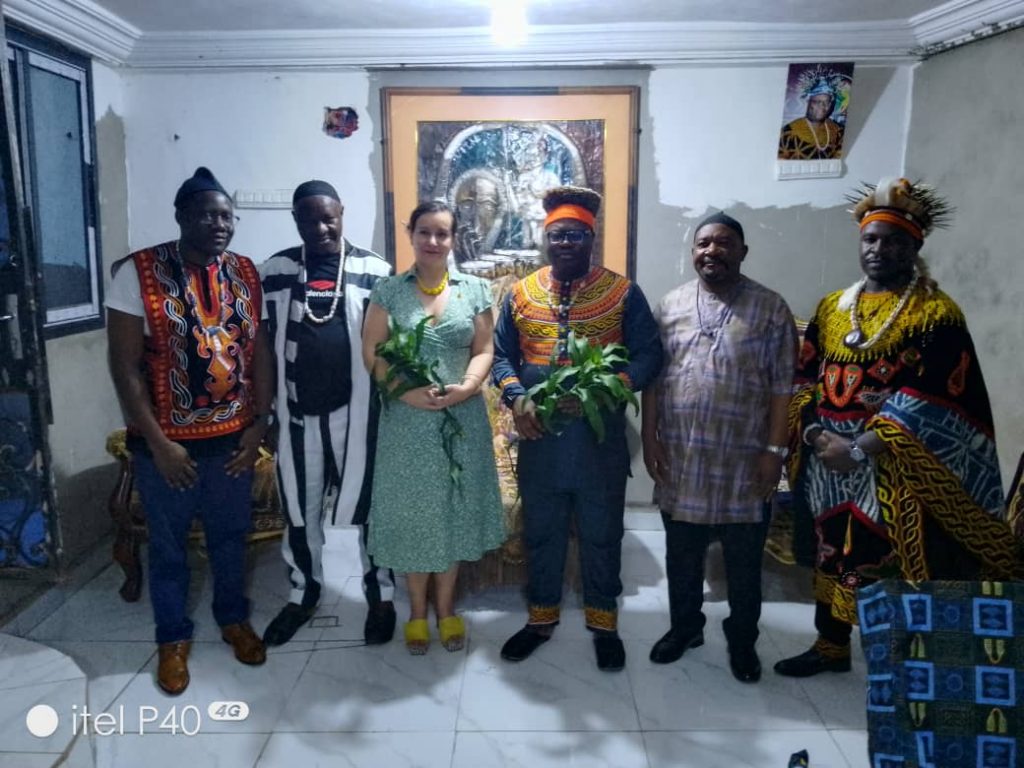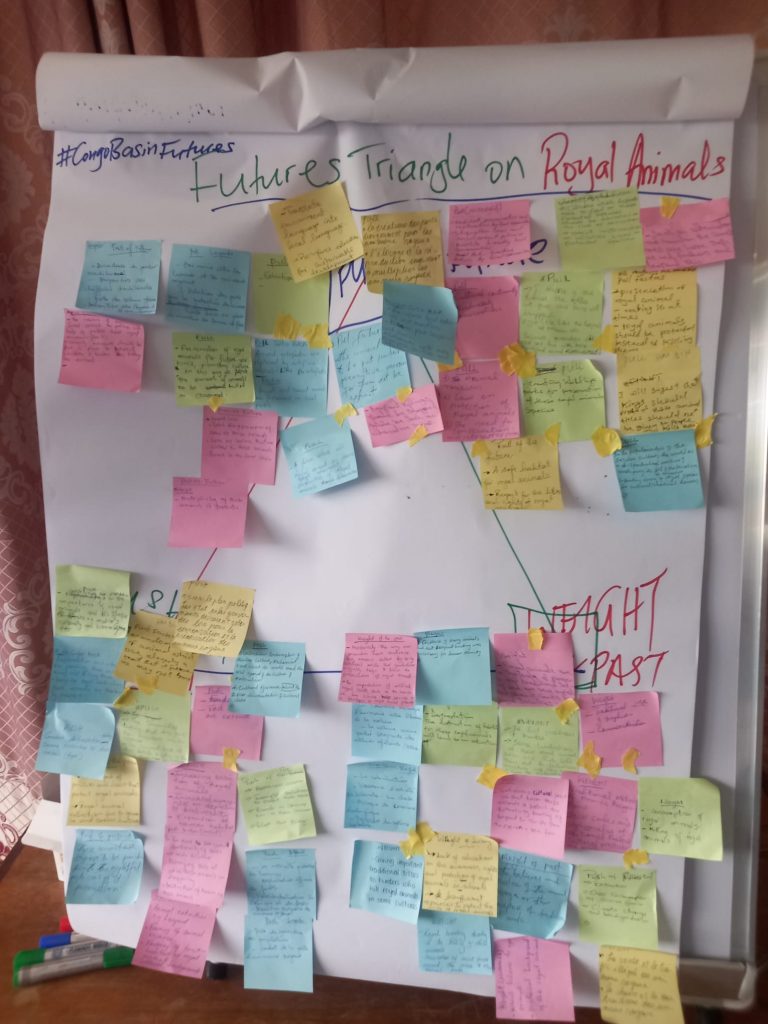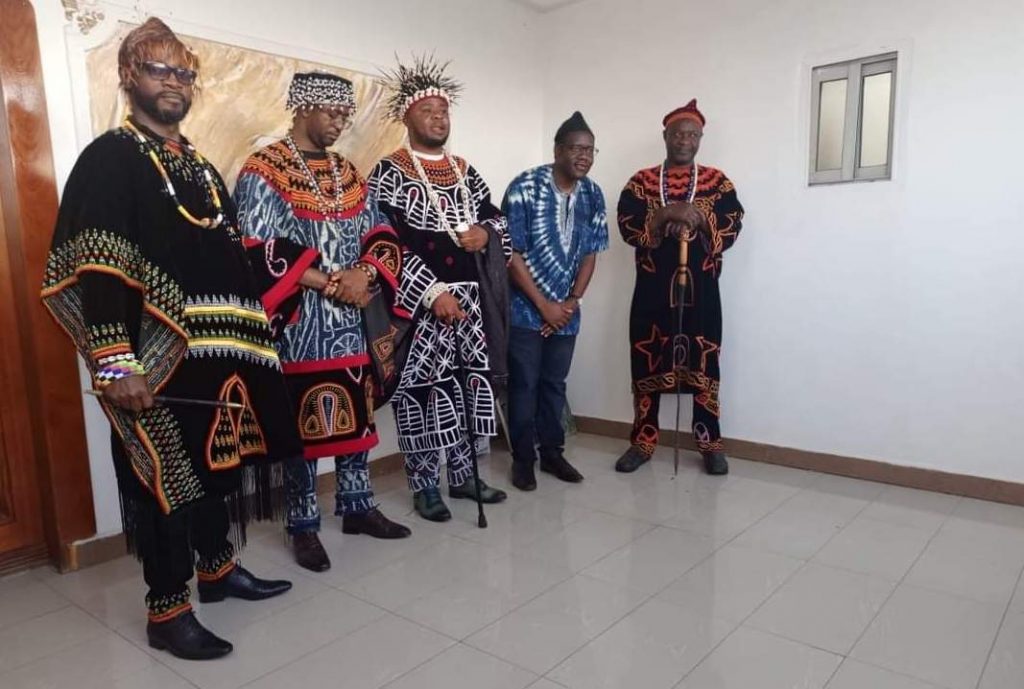
Dr Nsah Mala, a Next Generation Foresight Practitioner, has been instrumental in documenting and amplifying the evolving roles of traditional rulers in Cameroon. He also serves as a Coordinator for the University of Cologne’s Hub for Planetary Wellbeing within the UNESCO-MOST BRIDGES Coalition. His work shows how indigenous practices offer valuable lessons for long-term governance and cultural preservation.
He has led foresight workshops, such as #CongoBasinFutures and #RoyalAnimalsFutures, which focuses on sustainability, cultural preservation and intergenerational governance. Carried out in collaboration with the North West House of Chiefs, these workshops brought together people from different age groups and walks of life, including four traditional rulers: His Majesty Gilbert Njong III (Mbessa), His Majesty Ernest Ngum IV (Oku), His Majesty Joseph Ntang II (Din-Noni), His Majesty Peter Chuo Ketu (Ajung).
This piece draws on insights shared by HM King Kevin Yakum, President of the North West House of Chiefs, at the Pre-Summit National Consultation on 13 September 2024 in Yaoundé, Cameroon. Delivered on behalf of traditional rulers from the Anglophone North West Region, the presentation explored how indigenous leadership bridges cultural preservation and modern governance.

Cameroon’s traditional rulers, Fons, exemplify governance that honours cultural heritage whilst addressing modern challenges. HM King Kevin Teuvih Yakum highlighted how Fons act as custodians of tradition, bridging generations and balancing heritage with progress to promote sustainability, equity and a future-focused approach to governance.
Why look to indigenous leadership?
At its centre, governance is about creating systems that endure and that serve the interests of all its citizens. Cameroon’s Fons (Kings) have done this for centuries. They preserve cultural practices and innovate within their frameworks to meet evolving needs. Their approach goes beyond the short-term – it is a continuous process of building trust, engaging communities and ensuring fairness across generations.
This conversation is timely. The UN Summit of the Future and the adoption of the Declaration on Future Generations (DFG) signal widespread recognition that short-term crisis management is insufficient to address today’s challenges. It invites governments and multilateral organisations to instead prioritise long-term thinking in policy and planning. The work now is focussed on implementing the ambitions of the DFG.

How do we put these ambitions into action? One way is to look beyond existing governance frameworks. Cameroon’s traditional leadership offers new insights into cultural preservation, intergenerational equity and sustainable decision-making. In this regard, for example, HM King Gilbert Njong III of Mbessa Kingdom has already created the Mbessa Commission for Future Generations and Sustainability, chaired by Dr Nsah Mala.
Ahead of the UN Summit of the Future, in the context of the Pre-Summit National Consultation organised by the Cameroonian Government, SOIF MD Cat Tully and Dr Nsah Mala visited the North West House of Chiefs (Kings). During the visit, Cat was honoured as a Peace and Life Ambassador by a college of traditional rulers and presented with a symbolic Peace Plant and Kola Nuts. Prior to that, after the foresight workshops he had facilitated on 7 September 2024, Dr Nsah Mala was jointly elevated by the Kings to the traditional ministerial title of Nkfem Ntumfoyn to serve as their Ambassador and Messenger on issues such as Development, Peace, Sustainability, Foresight and Future Generations.

Five lessons from Cameroon’s traditional leaders
- Think generationally. Decisions made today shape the future. Preserving cultural heritage, protecting sacred spaces and safeguarding natural resources ensure continuity and intergenerational equity. Embedding foresight into governance can help maintain the values and traditions that link the past, present and future.
- Build trust through inclusion. Inclusive governance strengthens trust and community bonds. By amplifying marginalised voices and ensuring representation, systems become more equitable and cohesive. Creating platforms for participation, such as citizen assemblies or community councils, can support deeper engagement and promote fairness.
- Balance tradition with adaptation. Tradition provides stability during change and can inspire innovation. Practices like digitising oral histories or modernising cultural rituals demonstrate how heritage can evolve without losing its essence. Leaders who respect history whilst embracing modern progress create governance models that endure.
- Actively engage youth. Younger generations bring new perspectives and energy. By involving them in decision-making processes, governance systems remain dynamic and forward-looking. Programmes that encourage leadership development and youth councils ensure intergenerational equity and sustainability.
- Collaborate for impact. Complex challenges require collective action. Partnerships across governments, NGOs and academia bring diverse expertise to solve shared problems, from environmental conservation to cultural preservation. Cooperation creates innovative and scalable solutions that no single actor can achieve alone.
The Declaration on Future Generations offers a unique chance to turn these lessons into actionable governance practices. Transforming commitments into tangible outcomes requires clear strategies and effective tools. Our Implementation Handbook for the Declaration on Future Generations provides practical steps and examples to help translate ambition into action.
